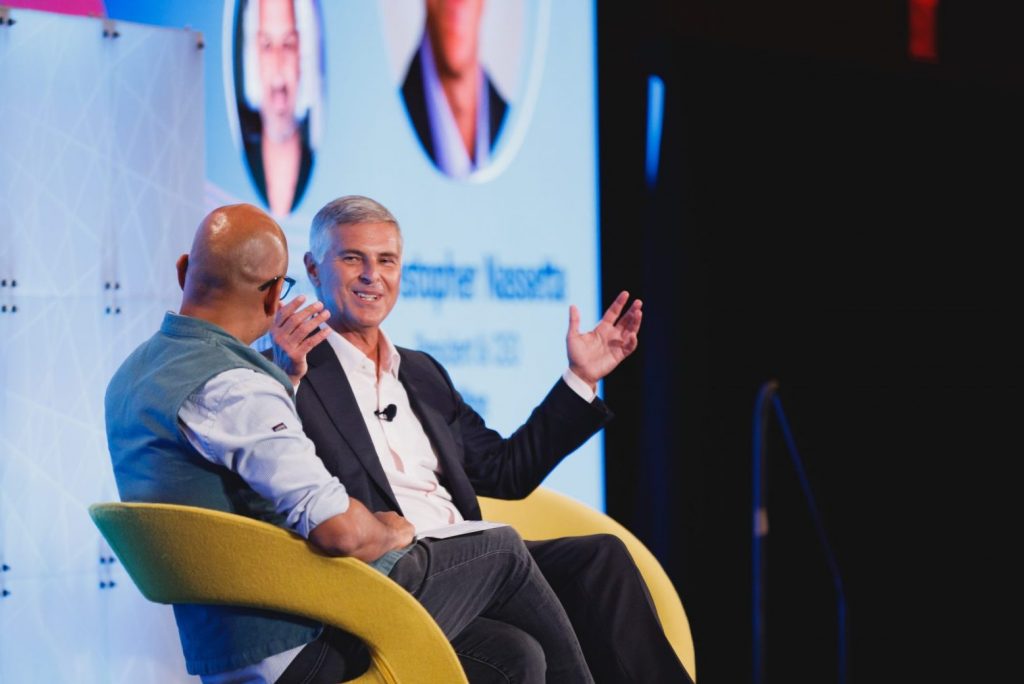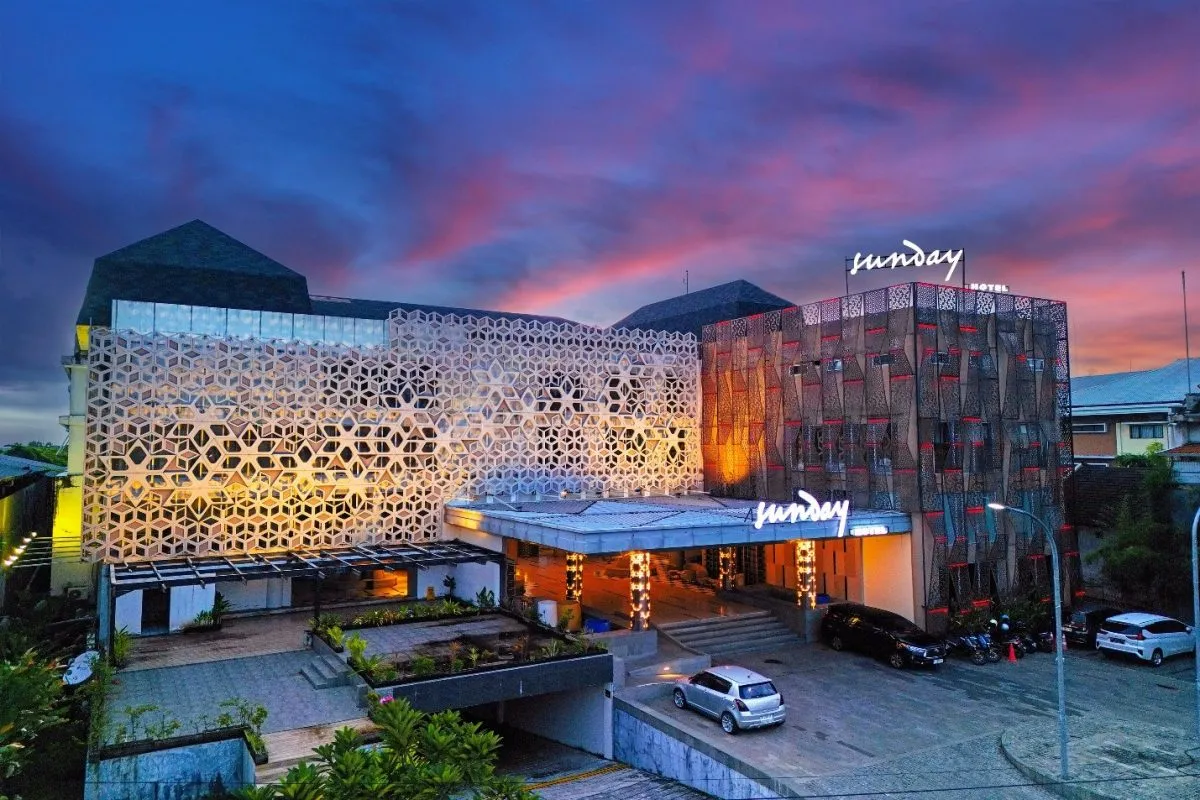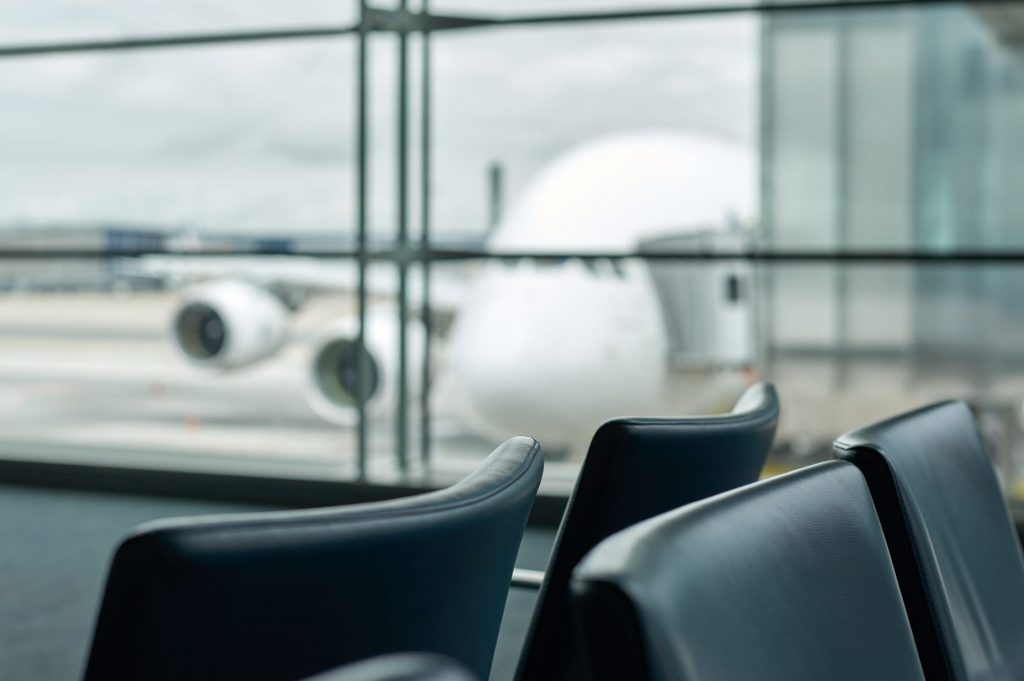Hilton CEO: Business Travel Demand Will Eclipse 2019 Levels in 3 Years

Skift Take
The reports of business travel’s death are greatly exaggerated, at least in the eyes of Hilton CEO Christopher Nassetta.
Nassetta closed out the second day of Skift Global Forum Wednesday not only with optimism surrounding the recovery of business travel demand during a freewheeling interview with Skift founder Rafat Ali. Nassetta went a step further by saying business travel demand would eclipse 2019 levels in a matter of three years.
The optimistic forecast went directly against the more dire outlook on business travel delivered by other forum speakers like Airbnb CEO Brian Chesky.
“My fundamental optimism, which I think is well-founded on data, is pretty much what it was [prior to the Delta variant outbreak],” Nassetta said before adding with a laugh on the naysayers: “They have a view that supports their business model, so I guess I’ll have one that supports mine.”
It isn’t necessarily blind optimism driving Nassetta’s upbeat recovery forecast. The company’s business transient demand already recovered to 75 percent of Hilton’s pre-pandemic performance.
The strong recovery isn't because major financial and consulting firms were exclusively traveling to Hilton properties. It is because 80 percent of the company’s business transient travel clients are from small and medium-sized companies.
“They don’t have the luxury of saying they’re not going to travel,” Nassetta said. “Big businesses are a small part of our business.”
Finding Momentum
The business travel demand outlook isn't the first time Nassetta has been a sunnier presence in the travel orbit. He was among the more optimistic travel CEOs when it came to what potential impact the Delta variant might have on bookings heading into fall — labeling the variant an “easily manageable” risk during the company’s second quarter earnings call in July.
“We’re not oblivious to the Delta variant and things that are going on in the world, but we’re confident because we think we will power through that,” Nassetta added on that summer call. “The trends that we see real-time are very strong and improving. We feel really good about that going to happen in the fall.”
He defended those statements Wednesday but also admitted there had been some setbacks in what had generally been a strong recovery momentum over the summer.
"My big picture view then was, as we get to the end of this year and into early next, we are on a solid road to recovery and I think we’ll continue to see pick up in the segments that have been lagging," Nassetta said. "If you dive a little deeper to where we are in this exact moment relative to where I would have hoped then, we’re a little behind, but that doesn’t change my view."
Data does suggest the Delta variant ate into a mid-week occupancy rate recovery in the U.S. Mid-week occupancy rates for the top 25 U.S. hotel markets steadily declined from more than 67 percent in late July to just shy of 56 percent at the end of August, according to STR. Mid-week occupancy rates in the largest U.S. cities are typically dominated by business travelers.
But any Delta-related decline in U.S. gateway markets like New York City and San Francisco could be offset later this year by the reopening of U.S. borders to vaccinated international travelers. The Biden administration announced the plan this week, and it could be a major recovery windfall to hotel owners in major cities heavily reliant on international tourism.
Airlines like British Airways, Virgin Atlantic, and Latam Airlines Group each reported triple-digit increases for flights to the U.S. in the first 24 hours since the border reopening announcement.
Once again regarding the naysayers, Nassetta noted it's never wise to base a prediction on the lowest point of a performance decline — likening it to people 20 years ago who viewed the Sept. 11 terrorist attacks as a permanent end to air travel.
"Broadly, it’s a fool’s errand to trend line off the bottom of the top," Nassetta said.




